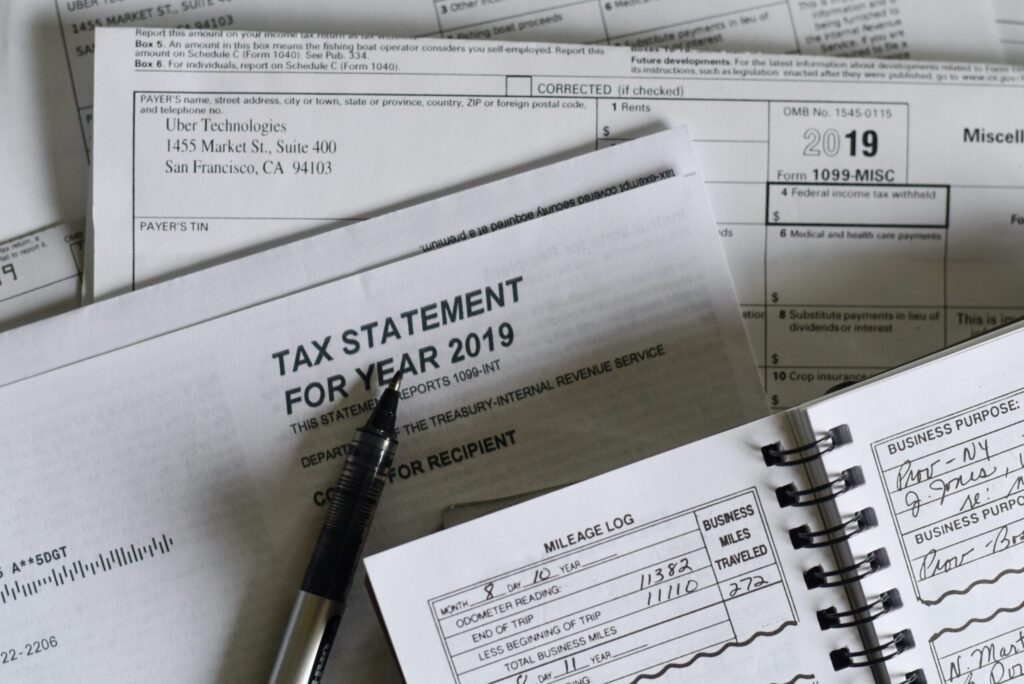Leaving a marriage is difficult, and the situation can feel even more daunting when you have little or no money. In fact, data from Statistics Canada shows that 43% of women experienced a significant drop in household income after a divorce, a stark contrast to the financial stability many face during marriage. Whether due to financial dependence, unemployment, or other circumstances, many individuals find themselves feeling trapped in a relationship because of their financial situation. It is possible, however, to safely and strategically leave a marriage even when you have limited financial resources. In this guide, we’ll cover the essential steps to help you navigate this challenging time and discover how to leave a marriage with no money.
How to leave a marriage with no money
Here are some recommended steps to take if you’re planning to leave a marriage while in a compromising financial situation.
Take stock of your financial situation
Before making any decisions, it’s crucial to get a clear picture of your finances. This step involves gathering information about your income, debts, assets, and monthly expenses. While it may feel overwhelming, understanding your financial situation will help you make more informed decisions about how to proceed.
- List all sources of income: whether from your job, government benefits, or spousal support.
- Assess your debts: include any personal loans, credit card debt, or joint financial obligations.
- Identify joint assets: consider properties, savings, pensions, or investments shared with your spouse.
Having this information will help you figure out what you’ll need financially to make the transition.
Seek legal advice
Even if you don’t have money for a lawyer, many law firms, including those that specialize in divorce, offer free initial consultations. A lawyer can help you understand your legal rights and options, including:
- Spousal support (alimony): depending on your situation, you may be entitled to financial support from your spouse.
- Division of assets: Canada follows an equalization of assets model, meaning marital assets are typically divided equally, regardless of who holds ownership.
- Child support: if you have children, your spouse may be legally required to provide child support.
Additionally, there are legal aid services available for those with low income. Legal aid can provide free or low-cost legal services depending on your financial situation and needs.
Create a financial plan
Having a financial plan is key to ensuring you can transition out of the marriage smoothly. If you don’t have access to joint finances or a personal income, you’ll need to be strategic about how you can manage financially, both short-term and long-term.
- Open a personal bank account: if you don’t already have one, it’s important to have a separate account for your own finances.
- Start saving, even in small amounts: if possible, start setting aside any extra money you can, even if it’s only a few dollars at a time. Every bit helps when building an emergency fund.
- Budget for your new life: estimate what your basic living expenses will be after the separation. Consider housing, utilities, food, and other essentials.
Look into available resources and support networks
If you’re leaving a marriage with no money, there are several community and government resources designed to help individuals in your situation:
- Government assistance: depending on your situation, you may qualify for welfare, housing assistance, or other government programs.
- Shelters and transitional housing: if you don’t have a place to stay, there are shelters and organizations that provide safe housing for individuals leaving difficult situations, including domestic abuse.
- Food banks: many communities offer food banks where you can get free groceries to help you in the short term.
- Nonprofit organizations: many organizations, such as shelters or domestic abuse charities, provide not only emotional support but also access to legal services, counselling, and financial assistance.
Secure your important documents
Before you leave, gather all important documents related to your identity, finances, and legal rights. These may include:
- Personal identification (passport, driver’s licence, birth certificate)
- Social insurance number (SIN)
- Bank statements and financial records
- Tax returns
- Marriage certificate
- Health insurance information
Having these documents in your possession will make it easier to start building financial independence after the separation.
Build a support system
Leaving a marriage is an emotional process, especially if you’re facing financial hardship. Surround yourself with a support network of friends, family, or professionals who can help guide you through this transition. In addition to emotional support, your network might be able to assist in practical ways, such as offering a place to stay, helping with childcare, or guiding you toward financial or legal resources.
- Friends and family: share your situation with trusted loved ones who can offer help and advice.
- Support groups: look for local or online support groups for individuals going through a divorce or separation.
- Counselling: many communities offer free or low-cost counselling services that can help you deal with the emotional challenges of leaving a marriage.
Consider employment options
If you don’t have an income, finding a job or increasing your earning potential will be a critical step in gaining financial independence. Even if it’s a part-time or temporary job, any income can help ease your financial burden and provide stability as you transition.
- Look for remote or flexible jobs: if childcare or other responsibilities are a concern, there are many opportunities for remote work that offer flexibility.
- Upgrade your skills: consider taking free online courses or seeking out community programs that can help you develop skills for better job opportunities.
Prioritize your safety
If your marriage involves abuse or you fear for your safety, it’s crucial to prioritize leaving safely. Reach out to a local shelter or domestic violence organization that can provide immediate help and shelter. There are hotlines available 24/7 to offer advice and assistance.
- Canadian Women’s Shelter Crisis Line: 1-866-863-0511
- Seniors Safety Line: 1-866-299-1011
- Compass Community Services LGBTQ+ Support Line: 226-669-3760
- Yellow Brick House Crisis Line: 1-800-263-3247
How to leave a marriage with no money: FAQs
Here are some of the most commonly asked questions we receive about how to leave a marriage with no money:
What happens if one spouse doesn’t want a divorce in Canada?
In Canada, if one spouse doesn’t want a divorce, the process can still move forward. Divorce in Canada is based on the principle of ‘no-fault’, meaning that only one spouse needs to believe the marriage has broken down irreparably. The most common ground for divorce is living apart for at least one year. Even if one spouse disagrees, the court can still grant a divorce after this period, provided all legal requirements are met, including arrangements for child support, custody, and property division.
Is one-sided divorce possible in Canada?
Yes, a one-sided divorce is possible in Canada. The Canadian divorce process operates on a no-fault basis, meaning that only one spouse needs to demonstrate that the marriage has irreparably broken down. The most common ground for divorce is living apart for at least one year. Even if one spouse does not agree to the divorce, the other can still proceed with the process, provided all legal requirements, such as arrangements for children and property division, are properly addressed.
Is marriage breakdown a valid reason for divorce in Canada?
Yes, marriage breakdown is a valid reason for divorce in Canada. The Divorce Act recognizes ‘marriage breakdown’ as the primary ground for divorce. This can be established in several ways: by living apart for at least one year, by demonstrating that one spouse has committed adultery, or by proving that one spouse has treated the other with physical or mental cruelty. The most common ground used is living apart for one year, which does not require either spouse to prove fault or wrongdoing.
How can I protect my money from divorce in Canada?
To protect your money from divorce in Canada, consider the following steps:
- Prenuptial agreement: before marriage, a prenuptial agreement can outline how assets and finances will be divided in the event of a divorce. This can provide clarity and protect personal assets.
- Separate accounts: keep personal funds and accounts separate from shared finances. This can help distinguish what is considered individual property versus marital property.
- Document assets: maintain thorough records of your assets and their value. This documentation can be crucial in dividing property equitably.
- Seek legal advice: consult a family law lawyer to understand your rights and obligations. A lawyer can provide tailored advice on how to safeguard your financial interests.
- Trusts and investments: consider placing assets into a trust or investing in ways that can legally protect them from division in a divorce.
Taking these steps can help minimize the impact of divorce on your financial assets.
Leaving a marriage with no money is undoubtedly challenging, but it’s not impossible. By seeking legal advice, utilizing available resources, building a support network, and creating a financial plan, you can start your journey toward financial independence and a fresh start. At Spergel, we understand the financial challenges of separation and divorce. If you’re struggling with debt or financial uncertainty, we offer compassionate, expert guidance to help you get back on your feet. Reach out to us for advice on budgeting, managing debt, and navigating financial difficulties during your transition. Book your FREE, no-obligation consultation today.



















